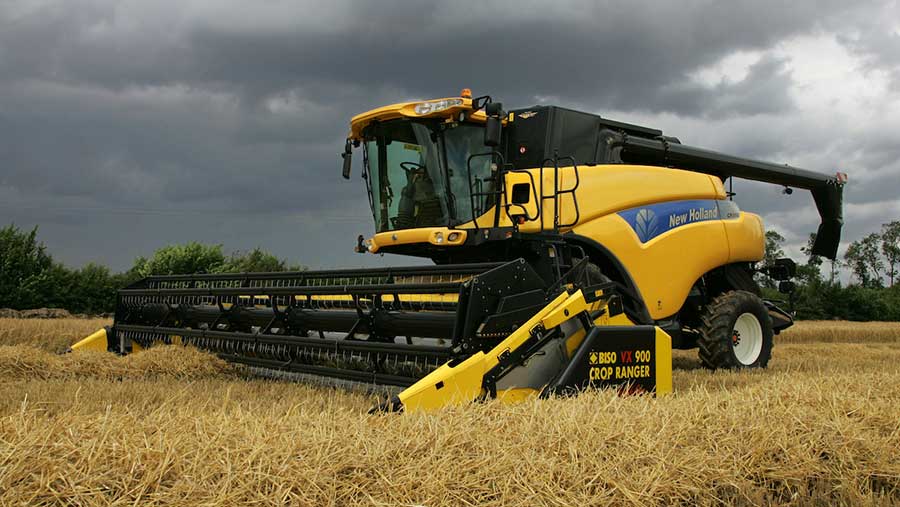Wet weather woes blight late harvest effort
 © Tim Scrivener
© Tim Scrivener Heavy rain is set to further hamper harvest progress amid mounting problems for livestock producers in Scotland and northern England.
Many places will see a period of wet and windy weather as the remains of Hurricanes Lee and Maria – which devastated the Caribbean – reach the UK after crossing the Atlantic.
Met Office chief operational meteorologist Steve Ramsdale said the remnants of the tropical systems were likely to be felt towards the end of Sunday (1 October).
See also: Scots farmers given more time to apply for ewe hogg payments
Weather warning
He added: “It looks likely that western parts of the UK will see the heaviest rainfall and a yellow National Severe Weather Warning has been issued for rainfall for Sunday and Monday.”
Some 25-50mm of rain is likely across western parts of the UK, with up to 100mm possible in upland areas, according to Met Office projections.
Further rain will do nothing to ease the pressure on farmers already battling to get in crops.
In Scotland, much of the cereal and potato harvest is still to be completed, with wet ground conditions making it difficult to establish following crops.
Significant volumes of straw are still to be baled, leaving livestock farmers short of winter bedding.
Aberdeenshire grower Stuart Davidson is waiting to combine about 120ha of spring barley at Knockothie Farms in Ellon.
Windy conditions
Mr Davidson managed to harvest 60ha of spring barley last weekend in overcast, windy conditions. But a week of wet weather has stymied any further progress.
“It has just been horrendous,” he said. “But in some ways, we are lucky as the crop is only just fit.
“The quality is still there. Hopefully, we can still get the malting premium.”
Mr Davidson has been harvesting barley ranging between 18% and as much as 27% moisture.
“If we’re cutting it in the low 20s, it’s not such a huge cost to get it down to 17%.”
He is hopeful that a more favourable weather forecast this week will allow him to catch up.
“We have good harvests, bad harvests and average harvests. But one thing we always have is a harvest,” he said. “It comes down to patience and optimism.”
Many areas report that silage-making is still to be carried out and stocks are short.
With cattle already in winter housing, slurry stores are becoming increasingly full, with ground conditions preventing spreading from taking place.
‘Three-crop rule’
Many farmers are experiencing problems planting green cover ahead of the deadline to sow crops to comply with the “three-crop rule”, said NFU Scotland.
The union has also said that the closed period for spreading slurry in Nitrate Vulnerable Zones – due to start on 15 October – is delayed to 30 October.
Farmers from Shetland to Stranraer were being challenged by the ongoing wet weather, said NFU Scotland president Andrew McCornick.
“Farmers and crofters are well used to dealing with the weather but this year, more than most, the elements are truly testing their resilience,” he warned.
“Everything is proceeding on a stop/start basis, as they dodge between the rain to make the most of any dry spell, and that is only adding to the frustration.
Drying costs
“The reality is that the weather will add cost for all. Cereal growers face a costly drying bill so that their crops can be safely stored without spoiling.
“Livestock keepers, with some herds already housed, will need more winter feed and bedding while facing difficulties in spreading slurry.”
Farmers in other northern European countries are suffering, too.
Growers in Germany and the Baltic states are struggling to get crops in amid a harvest that has been prolonged by wet weather.
The resulting variable quality has meant a slow start to the new crop export campaign, said Frontier Ag in a market report last Monday (25 September).

